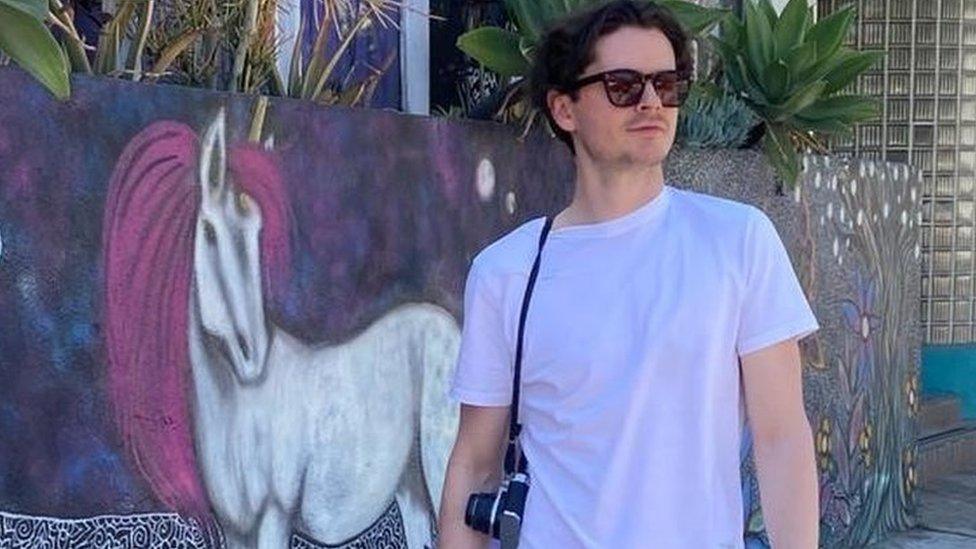Boys determined to 'carry on' despite rare disease
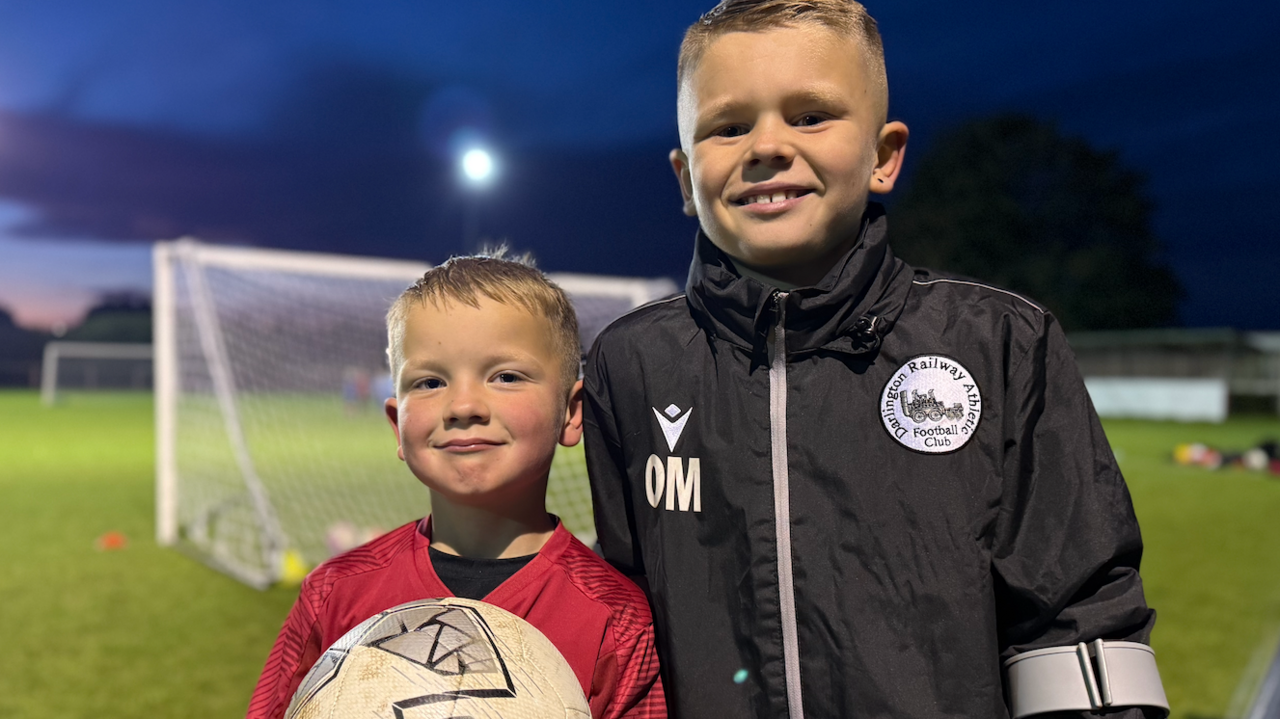
Brothers Harry and Ollie both are football fans and would like to play for Manchester City
- Published
A mother only discovered she was the carrier of a rare blood disorder when her second child was born with a black eye.
Charlene May, from Darlington, was left "distraught" after finding out both Ollie, now nine, and Harry, now seven, had inherited haemophilia.
The disease, which has no cure, affects the ability for blood to clot and minor injuries can sometimes result in emergency treatment.
Mrs May, who has taken the rare step of allowing her sons to play football, said she was determined they "carry on" as "two normal little boys".
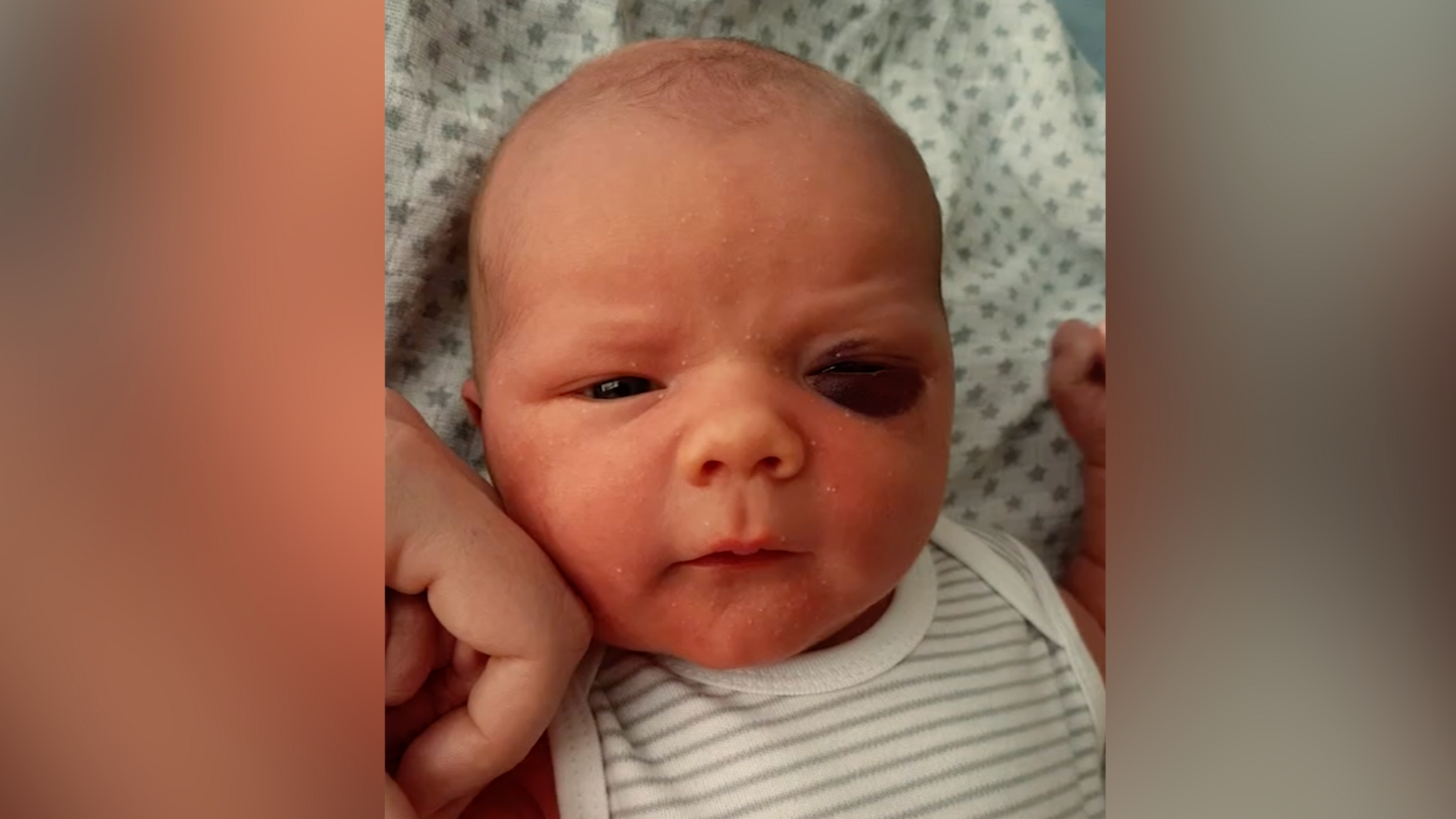
Harry was born with a black eye despite there being no trauma during birth
She had given birth to Harry when doctors saw a hematoma form on his eye, despite no signs of trauma.
The condition was diagnosed several months later, when he was old enough to undergo tests for the disease.
It was then when doctors confirmed his older brother, Ollie, also had the disease and Charlene had been carrying it in her genes.
"We didn't have an inkling," she said.
"Initially me and dad were like 'oh my goodness', it was horrendous, we were sent back home and then called into hospital, we were just distraught really."
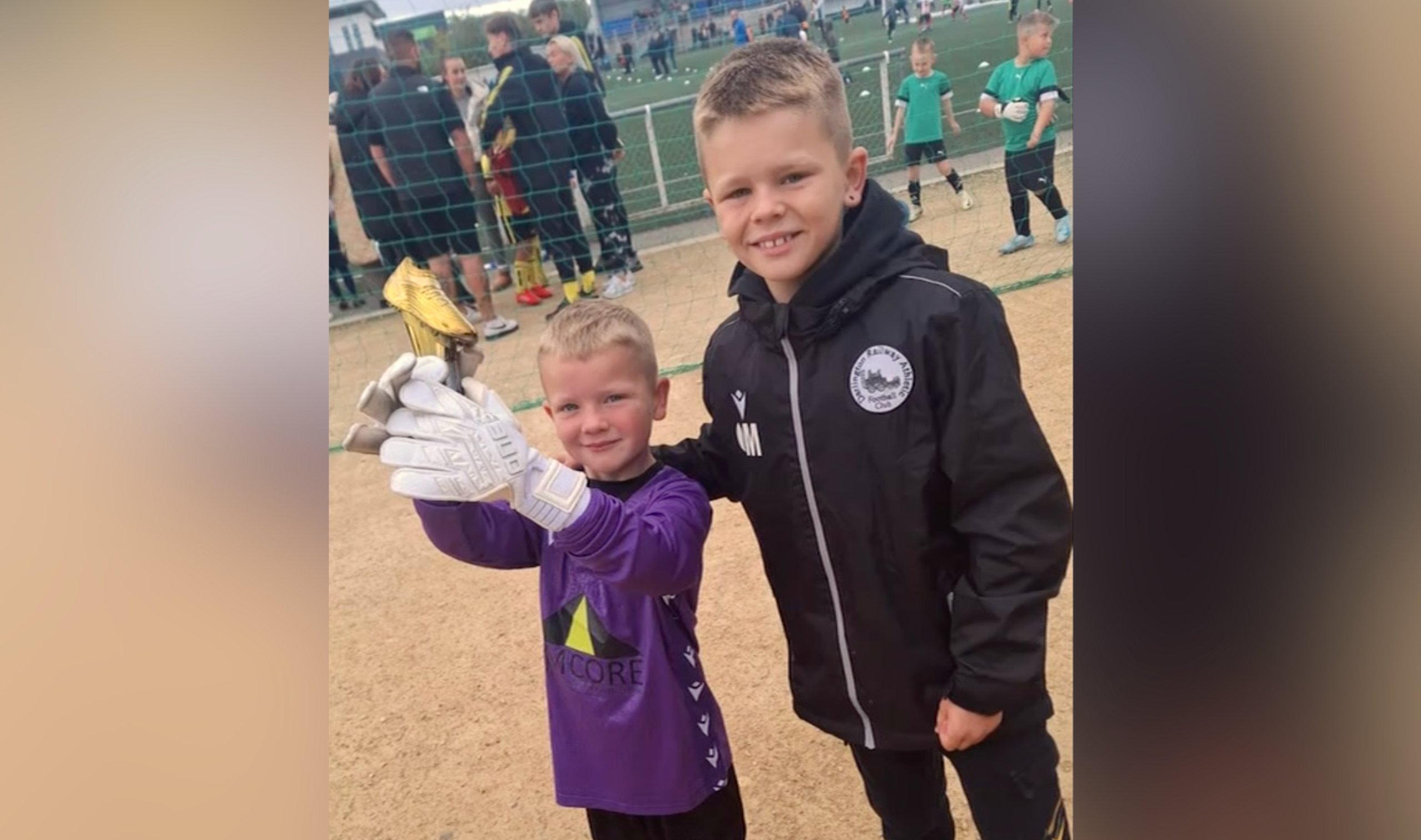
The brothers are keen footballers and train at Darlington Railway Athletic
Her children have to make routine visits to the haematology department at Newcastle's Royal Victoria Infirmary (RVI) and are monitored for the disease.
"Day-to-day, the boys bruise really bad, any little tap or bang they come out in huge hematoma," she said.
"Any minor injury we have to assess it ourselves, if it's badly bruising or a bang to the head, or a cut, we would phone the RVI."
The family has set up a fundraiser and raised more than £1,300 for the medical team at the RVI who are helping both boys.
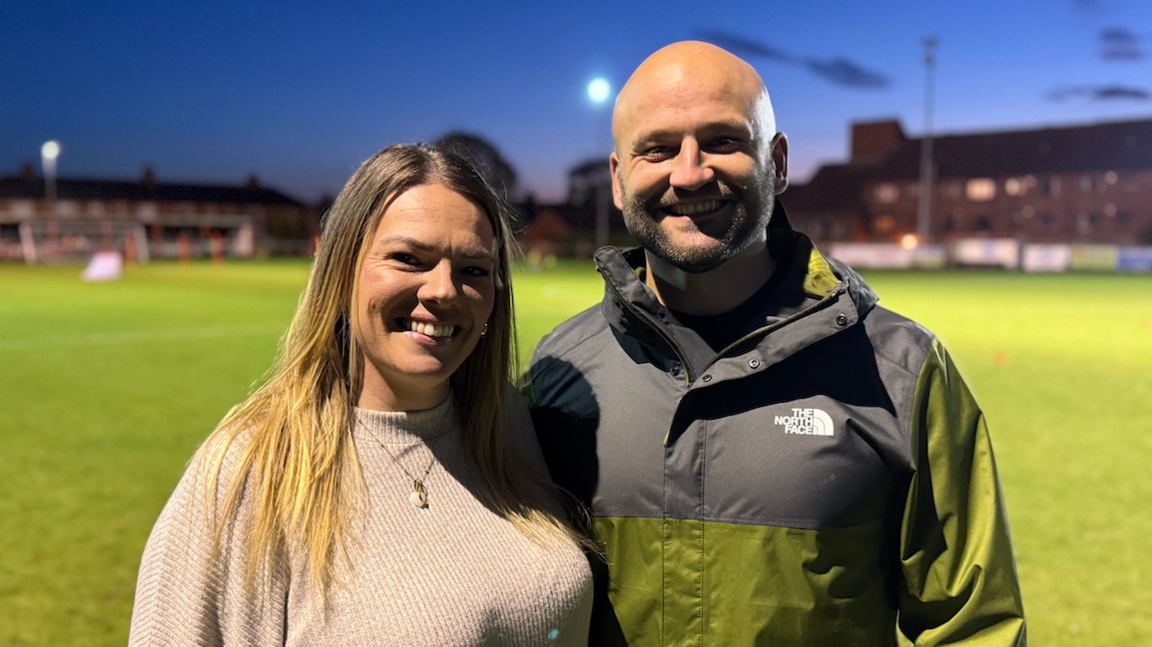
Charlene and Jamie say they are "proud" of their sons
Mrs May said football was not recommended by some due to the risk of injury but doctors were happy the brothers played, as long as they continued to attend appointments.
She added: "I can't hold them back that much, if we're going to stop them playing football are we going to stop them running in the street?"
She said any injuries are monitored, but it was important to allow her children to "be themselves".
In an unrelated injury, Ollie has been off the pitch for several months after doctors found he had broken his ankle, weakened by the condition, when he fell off his bike.
He said: "It will take a lot longer to heal... I'm looking forward to stepping back onto the pitch."
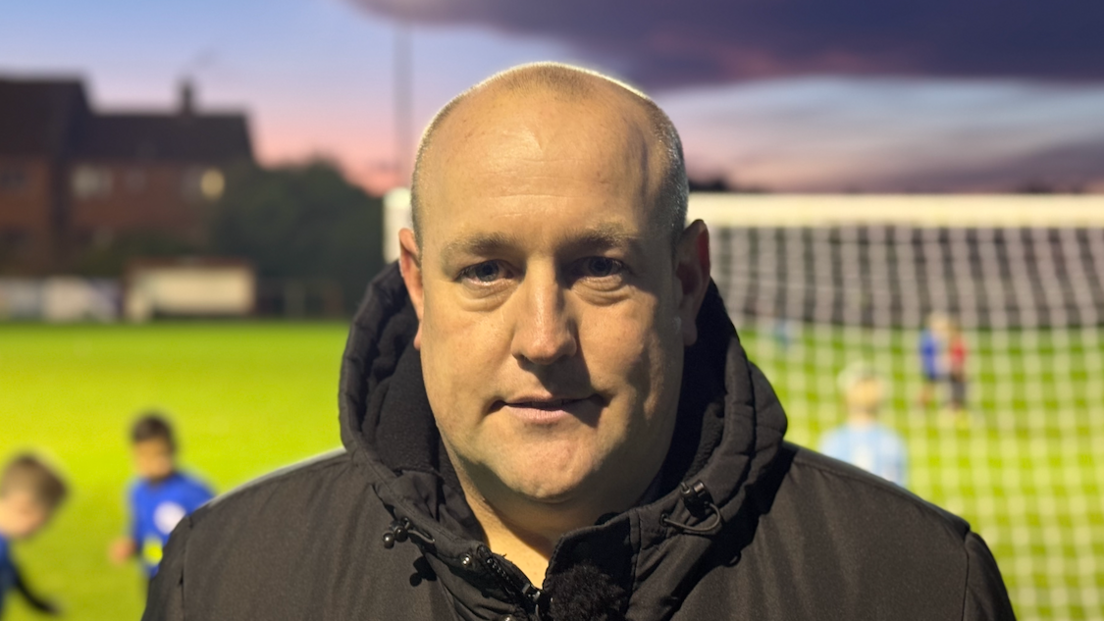
Chris Marksby says the children were "absolutely fantastic"
Chris Marksby, from Darlington Railway Athletic, said football was "important" for a child's development, which includes making friends and staying active.
He said: "[The condition] just doesn't deter them and it's amazing watching them play football here, smiles on their faces, just letting them get on with everything.
"They're a credit to the club, a credit to their parents but most importantly a credit to themselves."
Kate Burt, chief executive of the Haemophilia Society, said while those with the condition were at "higher risk" of chronic joint damage, specialists supported them to "lead active lives because they can see the overall health benefits that this brings".
"We’re really pleased to see Ollie and Harry enjoying their football and hopefully forming healthy habits which will last a lifetime," she said.
Follow BBC Tees on X,, external Facebook, external, Nextdoor and Instagram, external. Send your story ideas to northeastandcumbria@bbc.co.uk.
Related topics
Related stories from the BBC
- Published27 June 2024
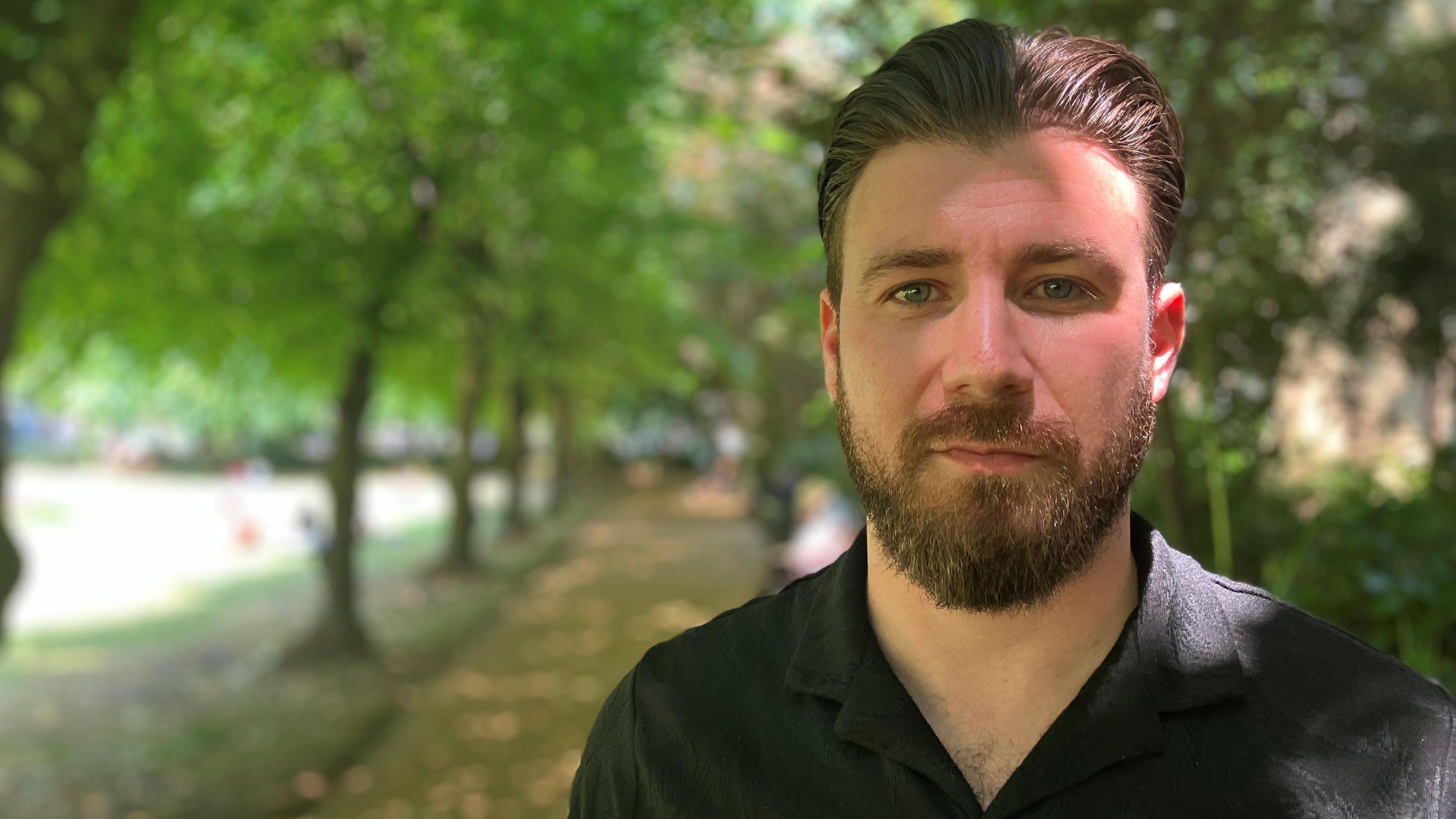
- Published21 July 2022
